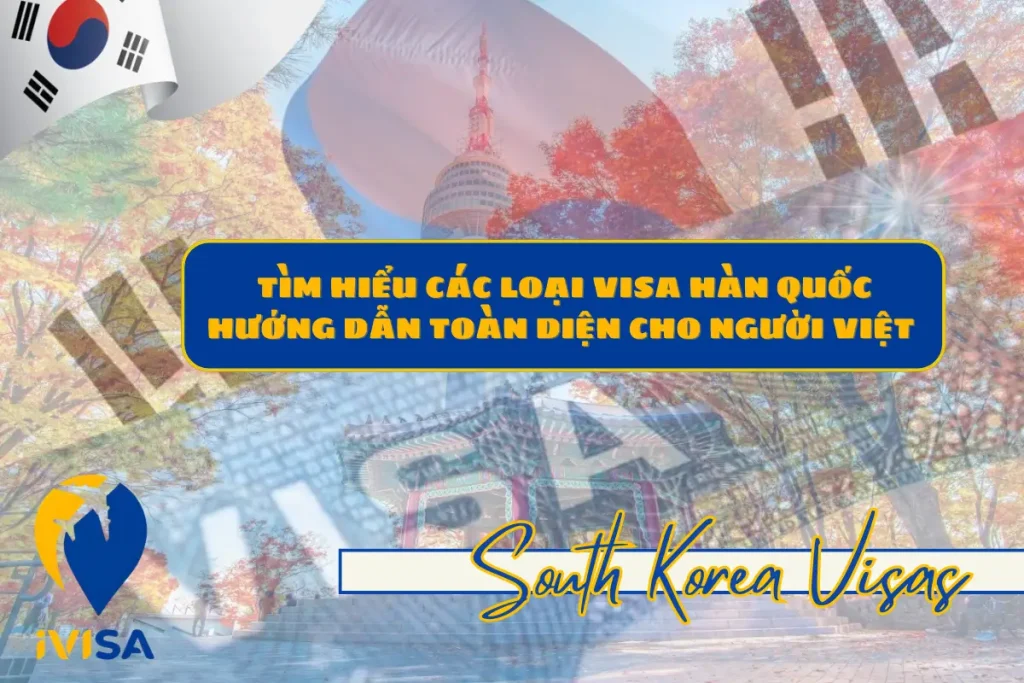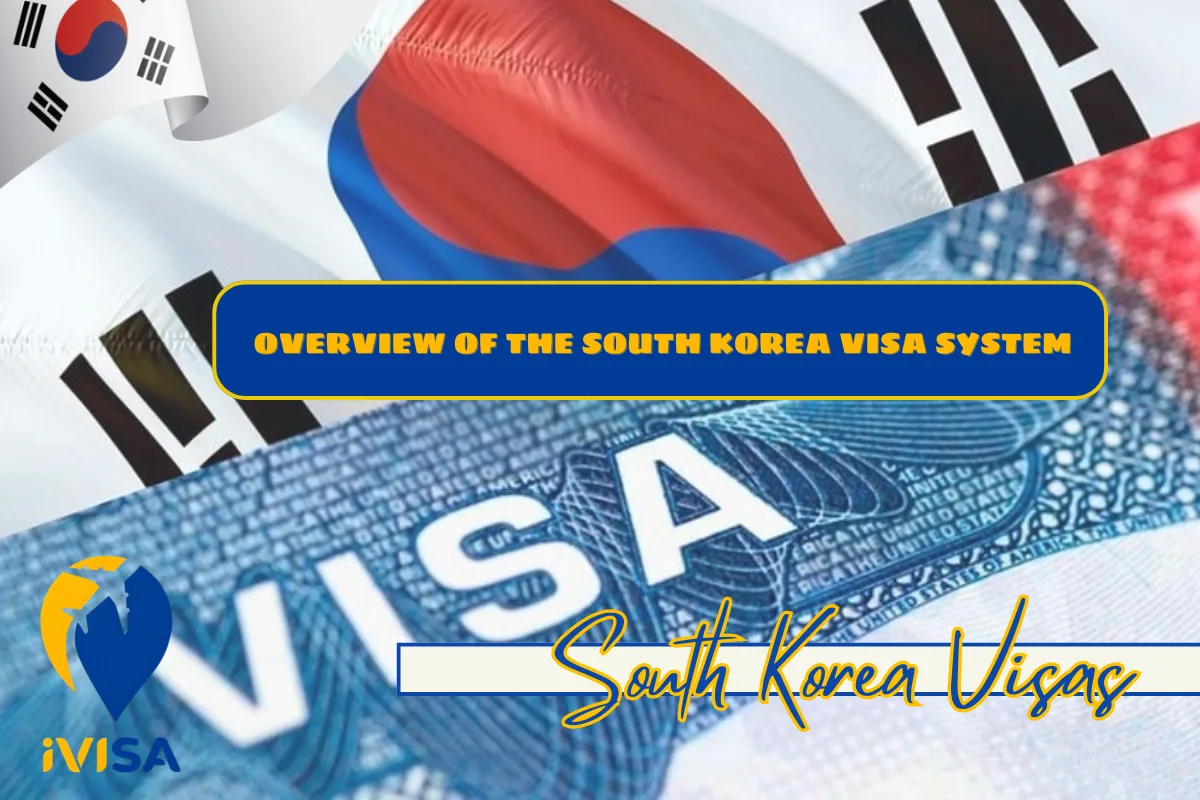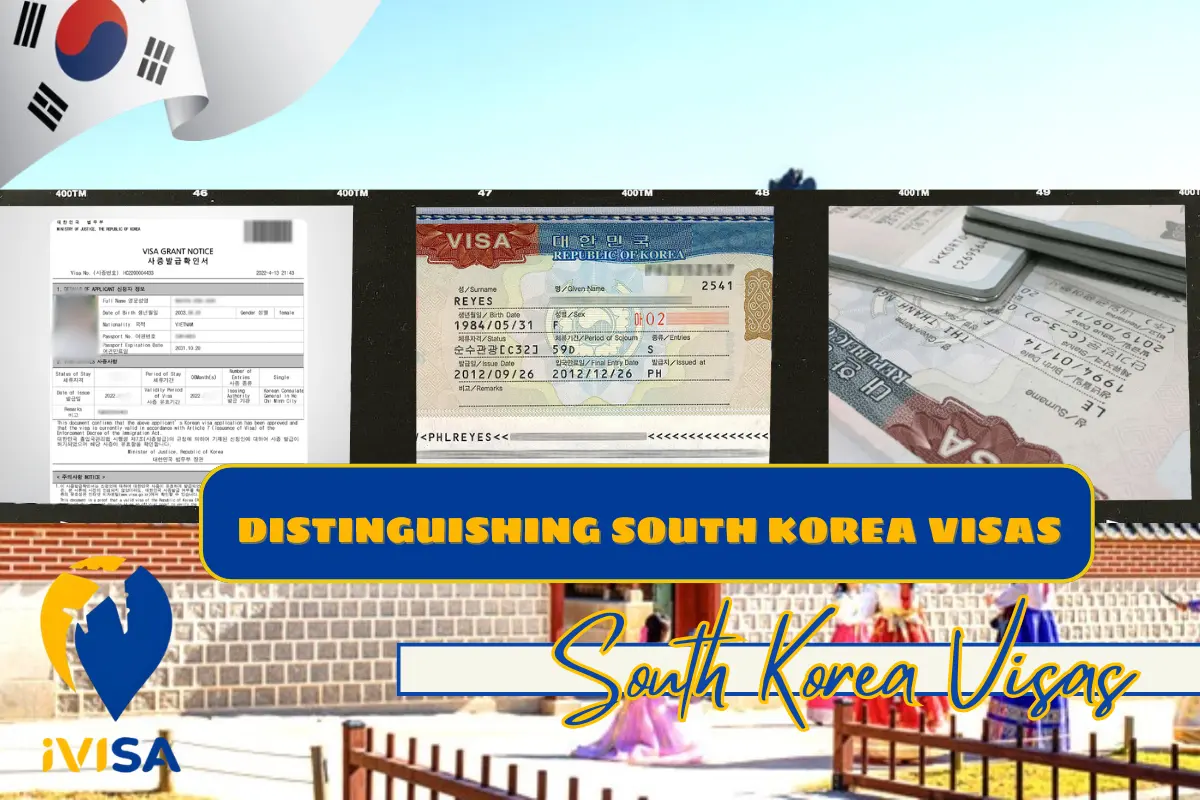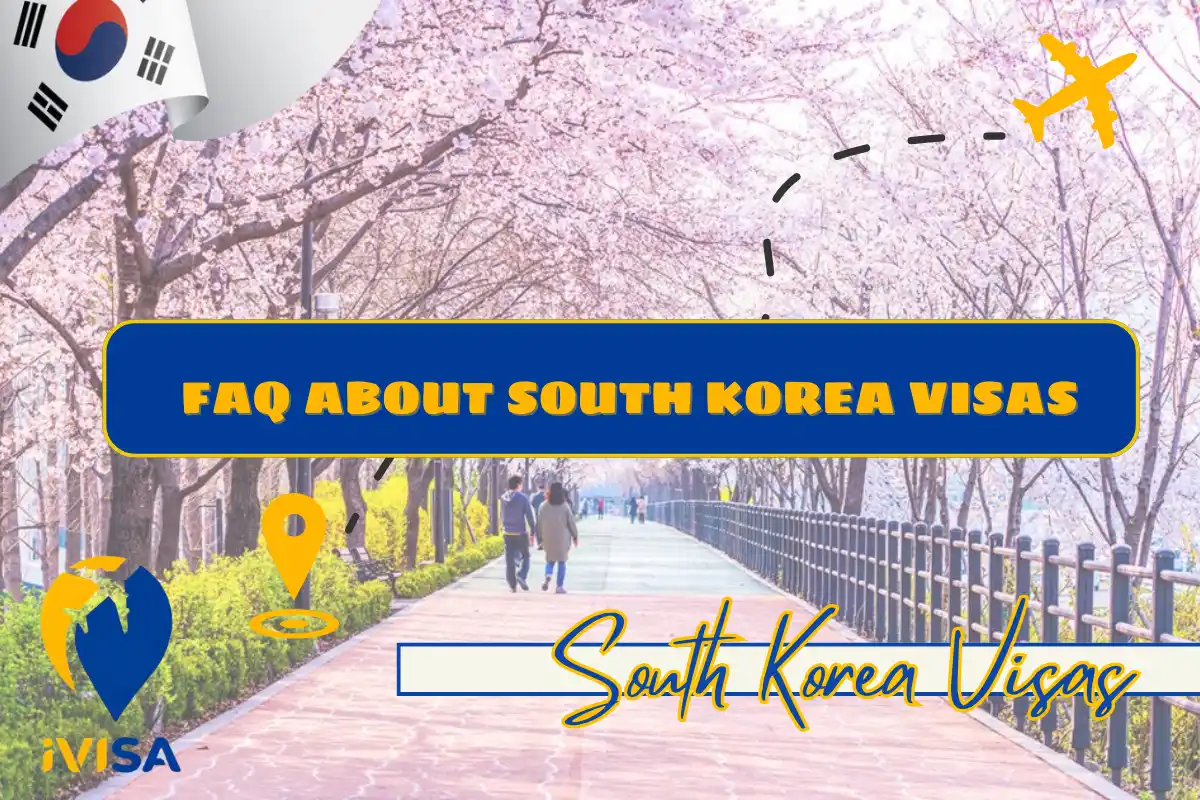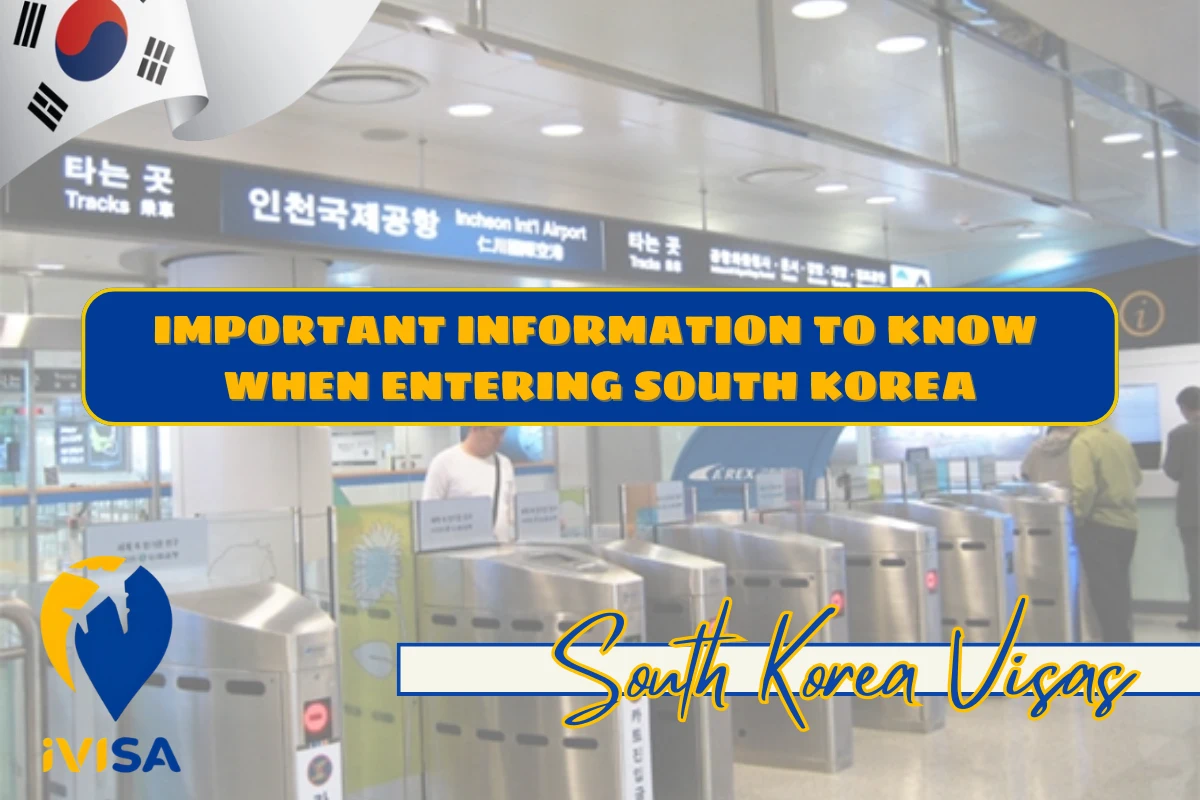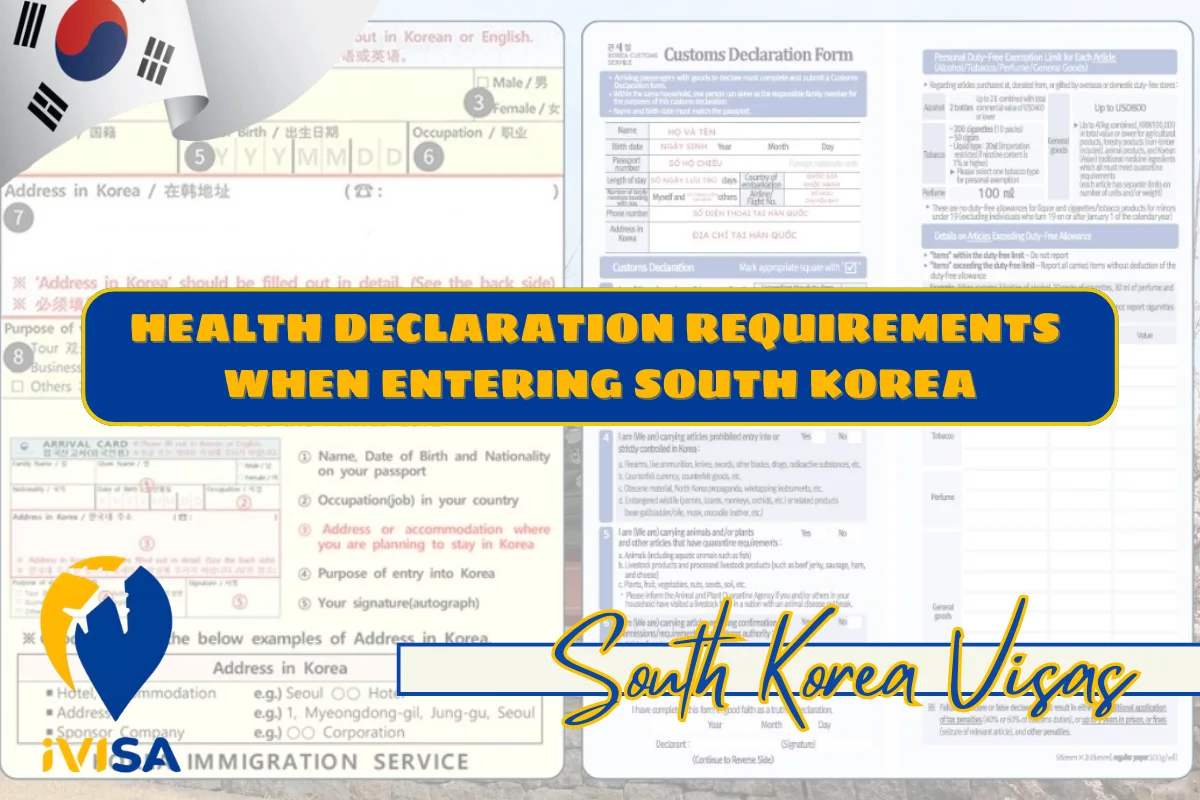Studying, traveling, or working in South Korea has become a popular choice for many Vietnamese. However, to enter legally and make the most of the benefits, you need to understand the types of South Korea visas. This article iVISA Property & Citizenship provides detailed guidance on each type of visa in the most effective way.
Overview of the South Korea Visa System
What is a South Korea visa?
A South Korea visa is a legal entry permit issued by the Korean government, allowing foreigners to stay for specific purposes such as tourism, business, study, work, or long-term settlement. Understanding the visa system not only helps you choose the right type but also avoid mistakes in your application and increase the chance of getting approved quickly.
Classification of South Korea Visas
Korean visas can be divided into the following main groups:
- C – Short-term visas (C3, C4): For those traveling, doing business, or visiting relatives.
- E – Work visas (E7, E8, E9): Suitable for skilled workers, general laborers, and those seeking career changes.
- D – Study and job-seeking visas (D2, D10): For international students or those looking for jobs after graduation.
- F – Residency and family visas (F2, F3, F9): Allow long-term residence, family reunion, or change of status from employment.
- Special visas: For journalists, diplomats, and international assignment holders.
Each code clearly reflects the purpose of entry, accompanying rights, and length of stay. This makes it easier to choose the visa that best fits your needs without confusion.
Distinguishing South Korea Visas by Popular Entry Purposes
Short-term South Korea Visas
When entering South Korea, there are many short-term Korea visas for tourism and business. Each visa type has different applicants, purposes, and duration of stay, so choosing the right one is crucial.
| Visa Type | Code | Eligible Applicants | Duration of Stay |
| Short-term tourism | C-3-1 | For those visiting relatives, attending cultural/art events, friendly competitions, investing in public projects, or attending conferences, short-term training, and lectures. Also for those observing specific activities within a limited time. | 90 days |
| Holiday tourism | C-3-9 | For tourists visiting and enjoying short-term vacations in South Korea. | 30 days |
| Group tourism | C-3-2 | For individuals or groups traveling or participating in short-term business activities at airports, with applications supported by travel agencies. | 90 days |
| Business | C-3-4 | For those conducting business activities such as market research, consulting, business contacts, contract signing, or small-scale business projects. | 90 days |
| Short-term business agreement | C-3-5 | For those entering under short-term business agreements, subject to current regulations. | 30 days/entry |
| Sponsored business | C-3-6 | For those invited by companies or organizations designated by the Minister of Justice, ensuring clear and legal business purposes. | 90 days |
If you are planning to travel to South Korea at any time of the year, contact service visa tourist Korea to iVisa for full-package support from A to Z to make your South Korea tourist visa application quick and convenient.
South Korea Medical Treatment Visa
Among South Korea visa types, medical treatment visas are notable. This visa is granted to those entering for medical treatment or to care for relatives undergoing treatment in South Korea. It not only ensures legal rights but also provides comprehensive support from medical institutions or organizations recognized by the Ministry of Health and Welfare of South Korea.
| Type | Code | Eligible Applicants | Duration of Stay |
| Medical treatment | C-3-3 | For patients receiving treatment at leading hospitals or medical institutions in South Korea, or home-based treatment upon request. The application must include an invitation letter from a medical institution registered with the Ministry of Health and Welfare. | 90 days |
| Nursing care | G-1-10 | For those accompanying patients, assisting in treatment or recovery. Companions must be invited by companies or medical organizations approved by the Ministry of Health and Welfare. | Up to 1 year |
South Korea Student Visa
According to statistics, Vietnam ranks among the top 5 countries with the largest number of international students in South Korea, showing the strong appeal of Korean education to Vietnamese students.
| Type | Code | Eligible Applicants | Duration of Stay |
| College | D-2-1 | College students, requiring TOPIK level 2 certificate | 2 years (depending on visa type) |
| Undergraduate | D-2-2 | University students | 2–4 years (depending on program) |
| Master’s | D-2-3 | Master’s students, requiring TOPIK level 4 certificate | 2 years (depending on program) |
| Doctorate | D-2-4 | PhD students, requiring a Master’s degree or higher | 3–4 years |
| Research student | D-2-5 | Postdoctoral researchers | According to research program |
| Exchange student | D-2-6 | Students receiving exchange scholarships under official agreements between universities | As specified in program |
| Linked language training | D-4-1 | High school graduates or equivalent, registering for Korean language courses at institutions linked to Korean universities or foreign universities based in Korea | Up to 2 years |
| Language training | D-4-7 | Secondary school graduates or equivalent, wishing to study Korean at institutions linked to Korean universities or foreign universities in Korea | 2 years (depending on visa type) |
Religious and Press Activity Visas
For those working in journalism or religious activities, South Korea provides specialized visas to ensure legal rights and convenient entry, assignments, or participation in activities.
| Visa Type | Code | Eligible Applicants | Duration of Stay |
| Short-term reporting | C1 | For journalists and reporters sent by foreign magazines, newspapers, or media outlets to report in the short term. | 90 days |
| Long-term reporting | D5 | For those sent by foreign press, radio, magazines, or news agencies to carry out reporting and interviews in Korea for long durations. | 1 year |
| Religious activities | D6 | For those invited to participate in religious or social activities in Korea, including teaching, community support, or other legal religious programs. | 2 years |
South Korea Marriage Visa
The South Korea marriage visa is for those married to Korean citizens. It not only applies to spouses but also to those responsible for raising children born from marriages with Korean citizens.
| Type | Code | Eligible Applicants | Duration of Stay |
| Korean spouse | F-6-1 | For spouses of Korean citizens, ensuring residency rights and related benefits. | 90 days |
| Childcare | F-6-2 | For parents not eligible for F-6-1 but who have custody of minor children born from a marriage (including informal marriages) with a Korean citizen. | Up to 2–3 years |
In-depth FAQ about South Korea Visas
Is the South Korea E9 visa for unskilled workers limited to certain industries?
The South Korea E9 visa for unskilled workers is usually restricted to specific industries such as agriculture, construction, and food processing. To switch to another sector, workers must comply with the Ministry of Labor’s conversion regulations and obtain employer approval.
Is there a way to check a South Korea visa quickly without going to KVAC?
You can check your South Korea visa online without visiting KVAC. Popular channels include:
- HiKorea – the official system for foreigners in Korea.
- Korean Visa Portal: https://www.visa.go.kr. Just enter your passport number, name, and date of birth to check your application status.
What is the Korean embassy purple stamp and its purpose in visa applications?
The Korean embassy purple stamp is an official mark confirming that your visa application has been reviewed and approved. When your file has this stamp, it means:
- The visa is legally approved.
- You can book tickets and prepare for entry.
- It reduces the risk of rejection at immigration checkpoints.
Can a South Korea tourist visa be extended while in Korea?
Tourist visas in Korea are usually short-term (up to 90 days) and cannot be extended while staying in Korea. If you want to return, you must exit and reapply for a new visa in Vietnam or your legal country of residence. In special cases (illness, natural disasters, flight cancellations), you may contact the Korea Immigration Service for assistance.
Read More: What You Need to Know Before Visiting Korea
If I fail the Korean embassy visa interview, can I reapply immediately?
If you fail the visa interview, you can reapply, but note:
- Review the reasons for refusal and supplement missing documents or provide clearer explanations.
- Do not reapply the same day; prepare a more complete and thorough application.
- Be well-prepared with accurate information to increase the chance of approval next time.
Important Information to Know When Entering South Korea
South Korea is a popular study abroad destination for many young Vietnamese thanks to its high-quality education, unique culture, and broad career opportunities. However, before arriving, international students must understand immigration rules and procedures to avoid unnecessary trouble.
Amount of money allowed when departing for South Korea
One common concern before flying to South Korea is how much cash can be carried. According to Vietnam customs regulations, you can only bring up to USD 5,000 when leaving the country. If you carry more, you must declare it at customs.
Baggage regulations when entering South Korea
Each airline has its own baggage policy. For example, if you fly to Korea with Vietjet Air, the rules are:
- Carry-on baggage: Maximum 7 kg for Eco/Deluxe tickets, 10–14 kg for SkyBoss, and up to 18 kg for SkyBoss Business. Dimensions must not exceed 56 × 36 × 23 cm.
- Checked baggage: No free allowance for Eco class, while Deluxe usually includes 20–40 kg, SkyBoss 30–50 kg, and SkyBoss Business up to 60 kg.
Prohibited items when entering South Korea include:
- Weapons and dangerous items: knives, swords, guns, gas, flammable or explosive substances.
- Illegal substances: narcotics and banned stimulants.
- Food: sausages, shredded pork, Chinese sausages, dried beef, meat-filled pastries, canned meat.
- Animal products: eggs, butter, cheese, milk, and dairy products.
- Plants with seeds: fruits and vegetables with seeds due to concerns about spreading agricultural diseases.
Health Declaration Requirements When Entering South Korea
Since January 1, 2024, all visitors and students entering South Korea are required to submit a health declaration via the Q-code system.
Pre-departure procedure
- Access the official website: https://qcode.kdca.go.kr/
- Fill in personal information and health status.
- Prepare your passport and flight ticket for quick data entry.
Procedure upon arrival at Korean airports
- After landing, present your Q-code to customs officers.
- If you have not registered for Q-code, you must complete a health declaration form at the airport. However, this process usually takes more time and may affect your personal schedule.
Understanding South Korea visa types and preparing complete documents will help you enter smoothly, avoid legal risks, and maximize your benefits. Whether traveling, studying, or settling in Korea, knowing the process and paperwork is the key to success. Prepare well for a smooth journey!
iVISA Property & Citizenship
- Add: Số 99 Nguyễn Thị Nhung, phường Hiệp Bình, TPHCM
- Hotline: 0937 999 610
- Email: info.ivisatravel@gmail.com

